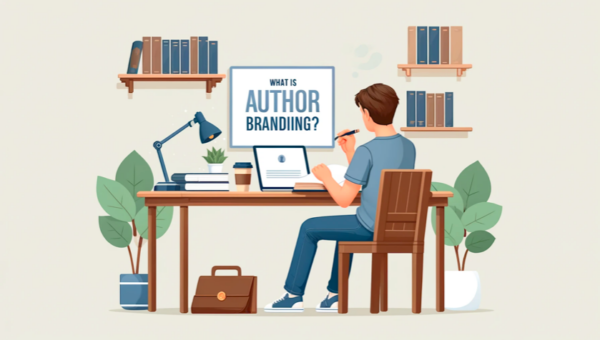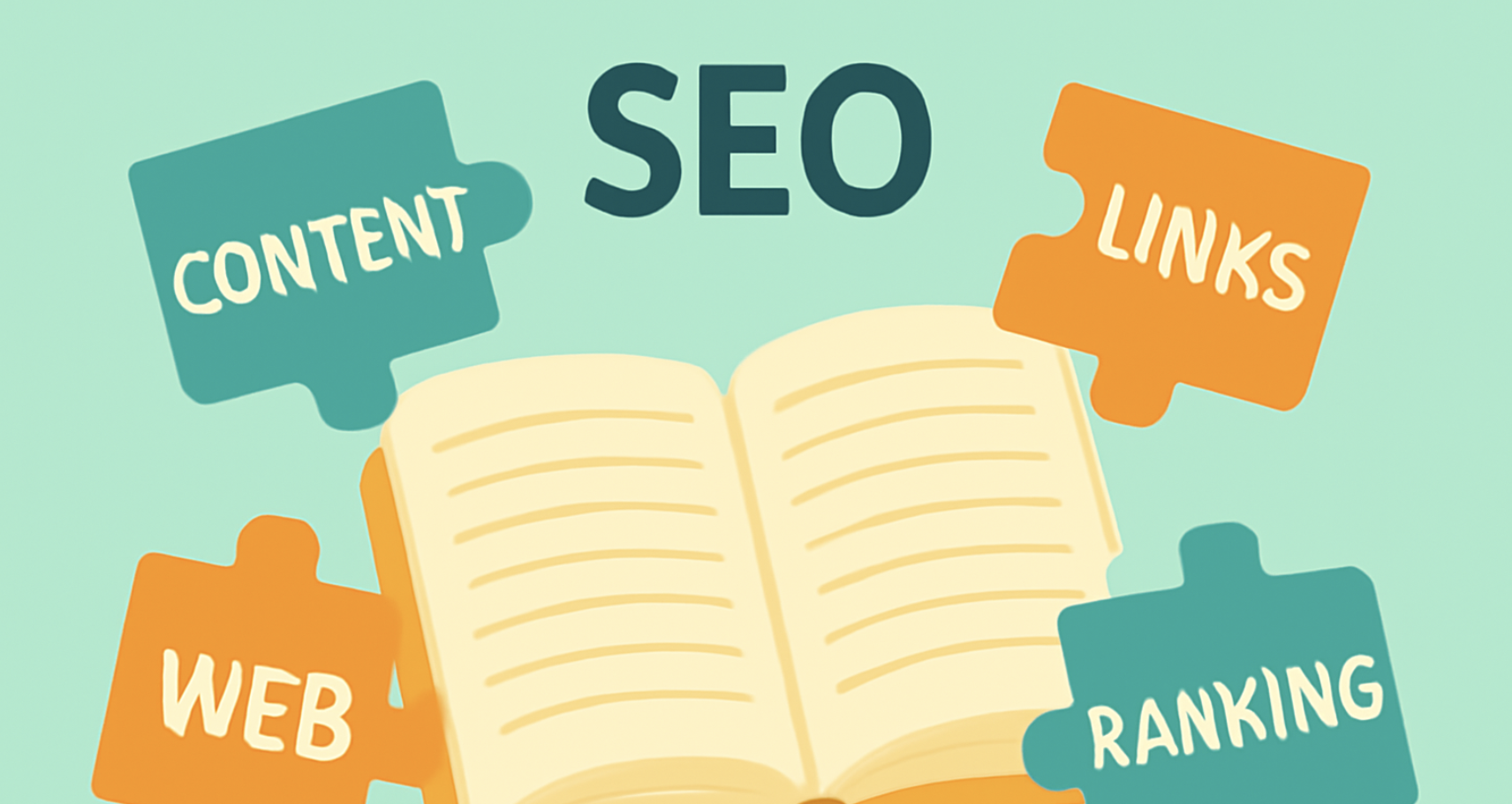In the dynamic world of contemporary literature, establishing a strong author platform is essential for writers at every stage of their careers. An author platform extends beyond simply showcasing works; it is an intricate framework that represents the author’s presence in both the physical and digital realms, facilitating a connection with their audience. Such a platform not only enhances an author’s visibility but is also crucial to the success of their publications.
For emerging authors, creating this platform is like setting the groundwork for their future in writing. It involves cultivating a space that not only draws in readers but keeps them engaged, even before their inaugural book is available. A robust platform acts as a springboard for first-time publications, ensuring there’s an enthusiastic audience waiting for what the author has to offer next. On the other hand, for established writers, maintaining an active platform is vital for keeping their audience captivated. It serves as a medium to announce new titles and nurtures a devoted community of readers.
The digital age has transformed building an author platform. The reliance on traditional engagement methods, such as book signings and literary gatherings, has diminished. Today, digital channels like social- media outlets, personal websites, and blogs are crucial for authors, particularly those self-publishing, to broaden their reach. These digital tools offer more intimate and immediate ways to interact with readers, share updates, and foster discussions, making them indispensable in the modern author’s toolkit.
Furthermore, the digital era has leveled the playing field in publishing, empowering self-published and indie authors to make their mark. This evolution underscores the importance of a strong online presence, often the main avenue for promotion and engaging with prospective readers.
Whether through engaging blog content, dynamic social media interactions, or thoughtful email newsletters, a solid digital author platform can greatly enhance an author’s visibility and success. Essentially, cultivating and building an author platform today transcends mere book sales; it involves building a personal brand, establishing a notable presence, and creating meaningful connections with your audience. It’s a commitment that demands persistence, strategic planning, and an openness to navigating the continually evolving digital world.
Your Publishing Journey Awaits – Start NowBuilding An Author Platform: The Essence of an Author’s Platform
An author’s platform is a sophisticated blend of personal branding and marketing, employing a range of tools and social channels, to connect with, engage, and expand their readership. It transcends mere online visibility, emphasizing a strategic, consistent, and genuine presence that captivates and grows an audience.
Building Bridges in the Literary World
Whether you’re penning your debut novel as first-time writer or are a seasoned writer, your own platform still acts as a vital conduit to your readers, the publishing industry, and the wider literary community. It empowers authors to take charge of their book marketing, transforming them into savvy promoters of their own work.
The Critical Role of Author Platforms
In the competitive publishing landscape, an effective author platform can make all the difference, especially for aspiring writers aiming to attract the attention of publishers and literary agents. It showcases an author’s ability to draw and retain readers, a key factor for publishers considering new talent. For those venturing into self-publishing, their author platform often becomes the lifeline of their marketing efforts, crucial for driving sales and building a dedicated fanbase.
Evolution from Traditional to Digital
Historically, an author’s platform was built on physical interactions and print media—book signings, public readings, and literary gatherings. While these methods retain their value, they often confine an author’s influence to their immediate surroundings or industry circles.
The digital revolution has dramatically broadened this scope. Today’s author platforms leverage social media, websites, blogs, and digital content like online interviews and webinars, enabling writers to reach a global audience. This digital realm for published authors offers novel ways to engage with readers, from sharing video teasers of forthcoming works to hosting live Q&A sessions.
Impact on Book Sales and Publishing Opportunities
A robust author platform not only boosts book sales for self-publishers but also significantly influences traditional publishing deals. It signals to publishers an existing, engaged audience eager for the author’s work, making a compelling case for a book deal. Similarly, literary agents are on the lookout for authors who not only write well but also excel in engaging with their readership, often considering the strength of an author’s platform when making their selections.
In summary, a well-crafted author platform is a pivotal element in an author’s career, offering expansive opportunities for growth and success within the literary domain. It’s a testament to an author’s market appeal and a crucial component in the modern writer’s journey to publication and beyond.
Leveraging Social Media Platforms and Accounts
In the digital era, social media is an indispensable tool for authors looking to build their platforms and connect with readers. The key to leveraging social media effectively lies in choosing the right platforms, maintaining active and engaging social media accounts, and using these channels to forge a connection with your readers.
Your Publishing Journey Awaits – Start NowIdentifying the Right Social Media Platforms
The first step in leveraging social media is identifying which platforms are most suited to your target readership. Different platforms attract different demographics and cater to varying content styles.
For example, Instagram and TikTok are ideal for reaching a younger, visually-oriented audience with images, short videos, and stories. X with its emphasis on brevity and immediacy, is excellent for engaging in literary discussions, sharing news, and networking with fellow writers and industry professionals. Facebook, with its vast user base, is great for creating author pages, joining writing groups, and organizing events. LinkedIn can be valuable for connecting with professionals in the publishing industry and for marketing non-fiction works.
Strategies for Active and Engaging Social Media Accounts
Maintaining an active and engaging social media presence is vital. Regular posting keeps your readers interested and helps attract new followers. However, it’s not just about the frequency of posts but also about the quality and relevance of the content. Share updates about your writing process, book launches, and events, but also post content that adds value to your readers, like writing tips, book recommendations, or insights into the literary world.
Visual content, like book covers, author photos, and behind-the-scenes glimpses, often generates more engagement. Using features like Instagram Stories or Twitter polls can also increase interaction with your audience. Hashtags are crucial for increasing the visibility of your posts to get more people, who aren’t yet following you.
Creating Meaningful Relationships with Readers on Your Author Platform
Social media offers a unique opportunity to build personal connections with your readers. Engage with your followers by responding to comments and messages. This interaction makes your followers feel valued and more invested in your work. Hosting live Q&A sessions, conducting virtual book readings, and participating in or hosting Twitter chats on relevant literary topics can further deepen these relationships.
Another effective way to engage readers is by sharing content that resonates with their interests. For instance, if your next book is historical fiction, sharing interesting historical facts or insights into your research can captivate your audience.
Examples of Successful Social Media Presence
Numerous successful authors have effectively utilized their social media profiles to significantly impact their engagement with fans. Take J.K. Rowling, for example, who skillfully engages with her audience on platforms like Twitter, answering questions and sharing insights into her writing process.
Elizabeth Gilbert, known for her inspirational works, connects with her audience on Instagram by posting content that resonates with aspiring writers and creative minds, fostering a deep connection with her followers. Stephen King, too, leverages platforms like Twitter to voice his opinions, offer writing advice, and keep his readers updated on his latest projects, ensuring his presence is felt strongly within the online community.
The key to successfully leveraging social media lies in a strategy that’s finely tuned to the preferences of your target audience, coupled with a steady stream of engaging content and a genuine effort to establish real connections with your readers.
By observing the approaches of a few ways these accomplished authors, you can glean valuable insights into the effective use of social media to broaden your reach, solidify and build your author platform further, and cultivate a deeper rapport with your audience.
Connecting with Your Target Audience
In the journey of building a successful author platform, understanding and connecting with your target audience is crucial. Your audience is not just a group of potential book buyers; they are the cornerstone of your writing career, a community that shares your passion for stories and ideas.
This section explores the strategies for identifying and engaging with your ideal readers, including aspiring writers and literary enthusiasts, and how to create content and maintain that connection through various tools and interactions.
Defining and Understanding Your Audience
The first step is to define your target readers. Who are your ideal target readers anyway? What are their interests, age groups, and reading preferences? For example, if you write young adult fantasy or adult fiction, your primary audience might be teenagers and young adults who enjoy escapist literature
Aspiring writers might be drawn to your work for inspiration and learning, while literary enthusiasts might seek depth and sophistication in your storytelling. Non-fiction readers may need a different approach.
Understanding your readers goes beyond demographics. It involves delving into their motivations, challenges, and what they seek in a book. This insight can be gained through market research, reading reviews of similar books, and engaging in literary forums and social media groups.
Your Publishing Journey Awaits – Start NowUsing Tools to Attract and Retain Readers
- Reader Magnets: These are incentives offered to readers in exchange for their email addresses, typically in the form of free content like a short story, a sample chapter, or an exclusive ebook. Reader magnets not only help in building your email list but also provide a taste of your writing style and stories, potentially turning curious browsers into new readers.
- Email Marketing: Once you have an email list, use it to keep your readers engaged. Regular newsletters with updates about your writing process, upcoming books, and exclusive content keep readers interested and make them feel part of your author journey. Personalized emails on special occasions, like book release anniversaries or seasonal greetings, can add a personal touch.
- Guest Posts: Writing guest posts for popular blogs or websites that cater to your readership is an excellent way to reach new readers. These posts should provide value and insight, showcasing your expertise and style, thereby enticing readers to explore your work.
Consistent Content Creation for Engagement
Consistent content creation, whether it’s blog posts, social media updates, or contributions to online forums, helps keep your fans engaged.
Your content should not only be frequent but also relevant and interesting to your readers. It could range from updates about your writing life, tips for aspiring writers to sell books, discussions about themes in your books, or general commentary on the literary world.
Creating engaging content on a consistent basis encourages readers to interact, share, and look forward to your next post. This consistency helps in building a community around your work, where readers feel connected not just to your books but to you as an a writer and author.
Feedback and Interaction for Building Loyalty
Interaction with your fans is key to building a loyal readership. Responding to comments, emails, and messages shows that you value their opinions and are interested in their thoughts. Encourage feedback on your work and use it to improve, grow, and get more followers.
Hosting virtual Q&A sessions, book club meetings, or live readings can provide a platform for direct interaction. Such engagements make readers feel valued and part of a larger community of like-minded individuals.
Surveys and polls asking for potential readers for their opinions on your upcoming projects or what they would like to see more of can also be effective. This not only provides valuable insights but also makes the readers feel involved in the creative process.
In conclusion, understanding who your readers are, using the right tools to attract and retain them, creating consistent and engaging content, and fostering an environment of feedback and interaction.
Building this connection is vital in establishing a loyal readership that grows with you throughout your writing career.
Expanding Your Reach: Websites, Blogs, and Beyond
In the digital age, an author’s online presence is pivotal to create and maintain a successful career. Central to this presence is an author’s website and blog, which act as the hub for their digital persona. These platforms, combined with other online and offline strategies, significantly expand an author’s reach.
Importance of an Author Website and Blog
An author website and blog serve as the cornerstone of your digital identity. They offer a dedicated space to showcase your work, share your author bio here, and provide updates about upcoming projects. Unlike social media platforms, which are subject to changing algorithms and policies, your website is entirely under your control and provides a stable, long-term home for your online presence.
A well-designed website lends credibility and professionalism to your author brand. It should be user-friendly, visually appealing, and reflective of your genre and writing style.
Including a blog on your website can further enhance your connection with readers by providing a space for regular, more in-depth content like writing insights, personal stories, or industry commentary, which you can include in a blog or guest blog post, below.
Optimizing Your Website
To maximize the effectiveness of your website, incorporate several key elements:
- Sign-up Forms: Place sign-up forms strategically on your website to collect email addresses. This helps in building your email list, which is a valuable asset for direct communication with your readers.
- Lead Magnets: Offer a compelling lead magnet, like a free chapter, short story, or exclusive content, as an incentive for visitors to subscribe to your email list.
- Recommended Posts: Feature recommended posts or your most popular content prominently to engage visitors and encourage them to explore more of your site.
- SEO Strategies: Implement basic SEO (Search Engine Optimization) strategies to improve your website’s visibility in search engine results, thereby attracting more visitors.
Utilizing Email Lists and Newsletters
An email list is one of the most powerful tools in an author’s arsenal for direct engagement and book marketing. Regular newsletters keep your readership informed and engaged with updates, exclusive sneak peeks, and personal anecdotes. You can also use your email list for book launch announcements, and promotional events, and to solicit feedback or reviews from your most dedicated readers.
Personalization of emails, segmenting your list based on reader interests or behaviors, and maintaining a consistent yet non-intrusive mailing schedule, and an email signature with your writer name are key to effective email marketing.
Exploring Additional Avenues
Beyond digital platforms, consider these additional avenues for expanding your reach:
Speaking Engagements: Participating in public speaking engagements, whether at literary festivals, workshops, or webinars (or even in a ted talk!), can significantly boost your visibility. These engagements position you as an authority in your field and allow for personal interactions with your fans.
Literary Magazines: Contributing to literary magazines, either through short stories, articles, or essays, can help you reach a broader audience and establish your name in the literary community.
Collaborations with Fellow Authors: Collaborating with fellow authors on projects, webinars, or joint book tours can introduce you to their audience and vice versa. This cross-promotion is a mutually beneficial way to expand your reach.
Podcasts and Interviews: Appear on podcasts or conduct interviews relevant to your genre. This not only broadens your audience but also adds a personal touch, allowing listeners to connect with your voice and personality.
Social Media Cross-Promotion: Use your social media channels to drive traffic to your website and blog, creating a cohesive online presence and attracting your ideal reader.
By integrating these elements, you can create a comprehensive platform that not only showcases your work but also builds lasting connections with your audience.
Conclusion: Navigating the Digital Age with Authenticity and Connection
In building an effective author platform in the digital age, the journey encompasses establishing a professional online presence, engaging with social media, understanding and connecting with your target audience, and leveraging the power of a personal website and blog to build your author platform. The importance of direct communication through email marketing and the value of collaborations and networking cannot be overstated. Each element plays a crucial role in creating a multifaceted writing platform that not only showcases your work but also fosters meaningful connections with your readers.
Your Publishing Journey Awaits – Start NowThe call to begin building and consistently nurturing your author platform is more than a step towards professional growth; it’s an invitation to join a vibrant, ever-evolving community of storytellers and readers. The digital landscape offers a wealth of tools and opportunities, but it’s the passion, authenticity, and persistence in engaging with these resources that truly make a difference.
As the nature of author platforms continues to evolve with technological advancements and shifting reader habits, the essence remains the same: it’s about creating meaningful connections and providing value to your audience. By staying adaptable, continuously learning, and embracing the opportunities that come with change, you can ensure that your author platform not only grows but thrives in the digital age.








